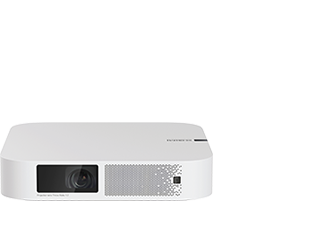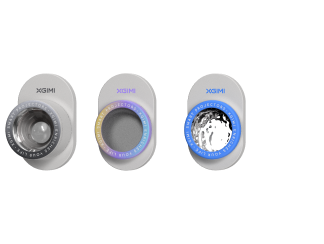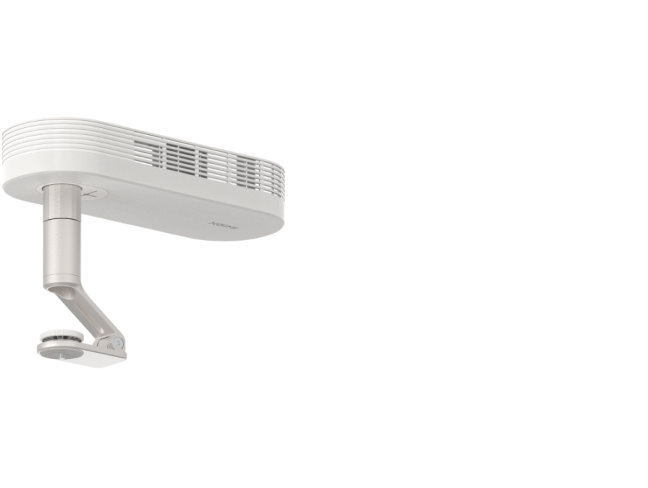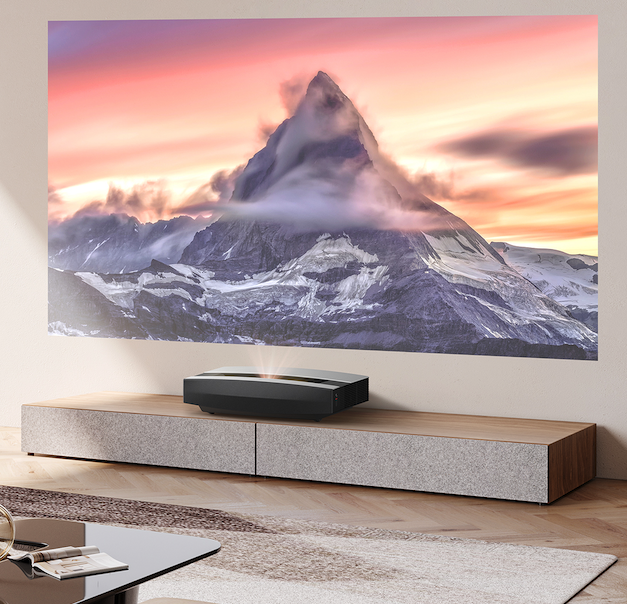Everything You Need to Know About HDR
By XGIMI Tech - 2024-3
High Dynamic Range (HDR) is a relative concept of Standard Dynamic Range(SDR). HDR technology has revolutionized the visual experience, offering a more vibrant and lifelike display. In this blog, we'll delve into the world of HDR, its definition, and HDR projectors.
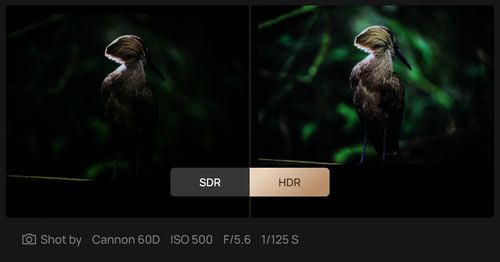
What Is HDR?
High Dynamic Range (HDR) technology is cutting-edge technology that comprises three key components: luminance, dynamic range, and color space (color gamut), each playing a crucial role in delivering a more realistic and captivating visual experience.
● Luminance
At the heart of HDR is luminance, which refers to the brightness of the displayed images. A machine with HDR technology will be brighter than conventional machines because the white point is much higher than a traditional white point by the same definition.
Traditional machines often result in a loss of detail. HDR addresses this challenge by expanding the luminance range, allowing for a more extensive spectrum of brightness levels. same definition.
● Dynamic Range
Dynamic range is one critical component of HDR, closely related to luminance. While luminance focuses on brightness, the dynamic range encompasses the spectrum from the darkest shadows to the brightest highlights.
In traditional displays, the dynamic range is limited, and capturing a scene's full breadth of contrast is challenging.
HDR extends the dynamic range, allowing for a more significant difference between an image's darkest and brightest parts. This expanded dynamic range enhances contrast, making scenes more vivid and lifelike.
It ensures that details in shadows are preserved and bright highlights are not overexposed. The result is a visually striking display that faithfully reproduces the complexity of real-world scenes.
● Color Gamut
Beyond luminance and dynamic range, color space or color gamut is crucial in HDR. Traditional displays have limitations in reproducing a wide range of colors, often leading to a less vibrant and accurate representation of the content.
HDR expands the color space, allowing for a more extensive and rich palette of colors.
By supporting a broader color gamut, HDR-enabled devices can reproduce colors more accurately, capturing the subtleties and nuances in every shade.
This enhanced color accuracy contributes to a more realistic and visually appealing display.
What Are HDR Projectors?
HDR projectors take the HDR experience to the next level by bringing it to larger screens. XGIMI projectors are equipped with technology that allows them to reproduce a broader range of brightness and color, ensuring that the HDR content is displayed with utmost accuracy and fidelity.
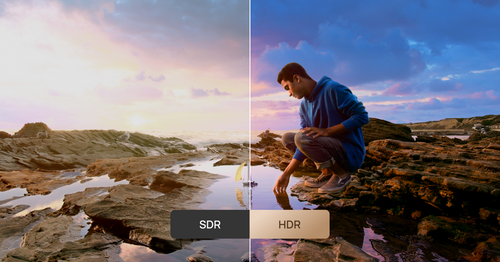
XGIMI HORIZON Ultra
XGIMI HORIZON Ultra uses advanced image processing techniques and supports HDR10, HLG, and Dolby Vision formats to deliver stunning visuals with enhanced contrast and vivid colors. that allows them to reproduce a broader range of brightness and color, ensuring that the HDR content is displayed with utmost accuracy and fidelity.

Final Takeaway
In conclusion, HDR technology and HDR projectors have redefined the way we perceive and enjoy visual content. Understanding what HDR is and exploring the benefits of HDR projectors in your setup can help you make informed decisions.
Additionally, exploring specific HDR formats like Dolby Vision adds another layer of sophistication to your viewing experience, providing a more authentic and immersive visual journey. Whether you're a cinephile, gamer, or professional presenter, embracing HDR can significantly enhance the quality of your visual entertainment.
Projector Recommendations
Just Play,
Your Way
Our Innovation, Your Style

Mini Size, Maximum Entertainment

Mini Remote Control
People Also Read
What Can HDR Do for Your Projector
Dolby Vision, HDR10+, & HDR10: Elevating Your Viewing Experience
Differences Between HDR And SDR
Enjoy $50 off Your Next Purchase
Be the first to know about any news and sales!
*By subscribing, you agree to receive XGIMI's marketing emails and XGIMI's Privacy Policy.








